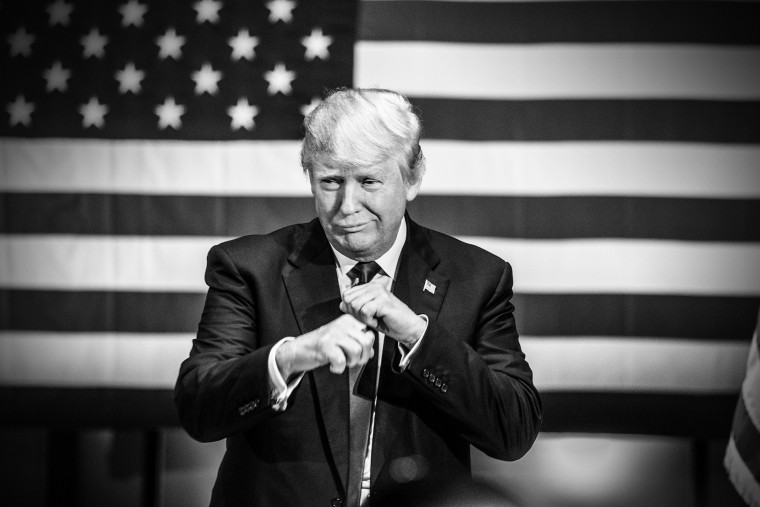Stephen Moore, a conservative economist advising Donald Trump, told a group of Republicans recently that they need to recognize the party's recent shift. The Hill reported:
Moore surprised some of the Republican lawmakers assembled at their closed-door whip meeting last Tuesday when he told them they should no longer think of themselves as belonging to the conservative party of Ronald Reagan. They now belong to Trump's populist working-class party, he said. [...]Asked about his comments to the GOP lawmakers, Moore told The Hill he was giving them a dose of reality. "Just as Reagan converted the GOP into a conservative party, Trump has converted the GOP into a populist working-class party," Moore said.
In the same interview, Moore added, "Reagan ran as an ideological conservative. Trump ran as an economic populist. Trump's victory turned it into the Trump party."One of these days, conservatives are going to have to come to terms with the fact that they have no idea what "populism" means.Indeed, not long after Moore's remarks, the Republican president-elect, leading the newly transformed "populist working-class party," indicated a variety of far-right billionaires would join his cabinet, including vulture capitalist Wilbur Ross for the Department of Commerce.Which was right around the time Republicans celebrated a court ruling blocking President Obama's policy expanding access to overtime pay for millions of working-class Americans.Which was right around the time the Associated Press reported -- about a month too late -- that Trump's tax plan would actually raise taxes on many middle-class Americans while delivering a windfall to those at the top.This. Is. Not. Populism.We talked a few weeks ago about the differences between rhetorical populism and actual populism, and it's clear that the Republican president-elect has effectively cornered the market on the former. Rhetorically, Trump is A Man of the People, railing against the established order. The elites have run roughshod over the interests of everyday Americans for too long, the billionaire celebrity told voters, and it was time the electorate overturn the corrupt system by electing Donald J. Trump, a champion of those overlooked taxpayers who've been left behind.Trump, in other words, has a populist style. He adopted a populist tone. The more Trump railed against the elites, the more the media characterized him as a populist, and the more his fans swooned.But actual populism is based on policies and proposals that advance the interests of working people. Real populists may struggle at times with style and tone, but they nevertheless fight for opportunities for those without, not those who are already members of the elite."Trump has converted the GOP into a populist working-class party"? Please. Since Election Day, it's become increasingly clear that Trump's team, priorities, and agenda represent the exact opposite.
